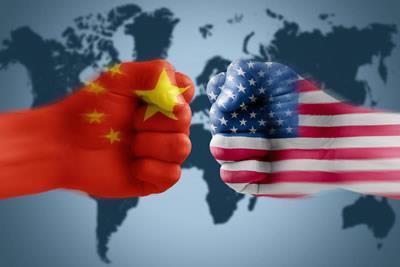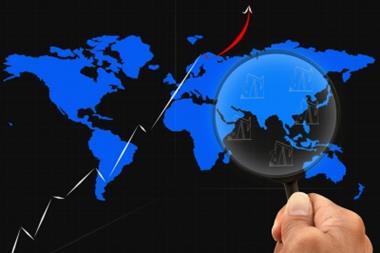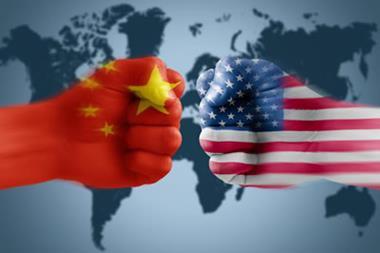Tensions between the United States and China continue to cause concerns around supply chain risks. Best-selling author and qualified risk director, Michele Wucker, explains why de-coupling is not the answer.
As the US heads into an election year, risk analysts and prognosticators have been keeping a close eye on the political situation.
One concern is the continuing tensions between the United States and China, which raise significant supply chain concerns for businesses and have been exacerbated by the election run-up.

Michele Wucker, a best-selling author and qualified risk director, evaluated the threats and opportunities on the Political Risk Podcast. She said: “Election season tends to be silly season, when candidates try to say the most outrageous things to get the most attention during the primaries, and to get as much news time as they can.
“They also try to sound tough, which means chest thumping when it comes to real and imagined adversaries. And people tend to talk a lot about hot button issues… so it’s often a very dangerous and volatile time…
“There’s also a lot of potential for damage if we don’t turn relations around to a better direction, particularly… where a lot of candidates are trying to outdo each other on how tough they are on China… When both countries are pushing each other’s buttons, there’s a lot of room for policy mistakes.”
While these errors may be small individually, when added together they multiply, creating what Wucker calls the “grey rhino” effect.
“A lot of candidates are trying to outdo each other on how tough they are on China”
She explained: “It’s not just one plus one plus one equals three. You often get magnified events and huge surprises that you can’t predict. A crash of grey rhinos is behind every black swan, but we can see, roughly at least, the outline of the grey rhinos. And so, we need to do everything that we can to keep those grey rhinos from charging.”
Wucker said changing the conversation on China is critical for avoiding such black swan events, adding that the potential for good if the two countries can collaborate is enormous.
She said that organisations should take heart from recent APEC meetings, which have demonstrated attempts to dial down some of the tensions and focus on areas where there can be constructive collaboration, such as the rapid development of technology and the need for global collaboration around AI and tech and data standards.
She explained: “There are always going to be missed opportunities and gaps… but we are seeing lots more regular meetings between senior US and senior Chinese officials, which is very, very promising. We can’t take that relationship for granted, but the potential for getting it right is huge and the potential damage from getting it wrong is beyond what we can even imagine.”
What does it mean for businesses?
Against this backdrop, it’s easy to understand why many organisations have considered decoupling from China to protect their supply chains. However, Wucker cautioned that strategic engagement is more likely to yield constructive change, adding that diversification is a better approach for risk mitigation.
She said: “There’s lots of talk of decoupling with China in supply chains, but what’s actually happened is those supply chains have diversified and become more complex. Often China is sending the first part of the supply chain to a third country, and so we’re seeing more trade with countries like Mexico.”
Diversification not only protects against risks arising from a strained relationship between China and the US, it can also mitigate other key risks including those from natural catastrophes.
Wucker explained: “Diversification of supply chains makes as much sense as diversification of your financial portfolio. It’s pie in the sky to think that we could completely decouple because the ties are too deep and strong. And I think that’s a good thing.”
“The role for business is to engage constructively in their own supply chains”
She added that companies such as Nvidia are already reporting that they are expecting significant losses on an ongoing basis from the export prohibitions to China. And at the same time, there are more technological breakthroughs from China, which people in the West tend to dismiss.
She concluded: “The role for business is to engage constructively in their own supply chains if there’s something going on that they don’t like. I think it’s imperative for businesses to ensure that everyone who is in their supply chain is taking human rights and environmental laws seriously… and not try to wash their hands of it.
“At the same time, I think it’s important for them to be public about the importance of constructive diplomatic engagement. There are lots of cynics out there, and I’m not rosy eyed, but I do think that engagement is the best path forward in 99% of the cases.”















No comments yet